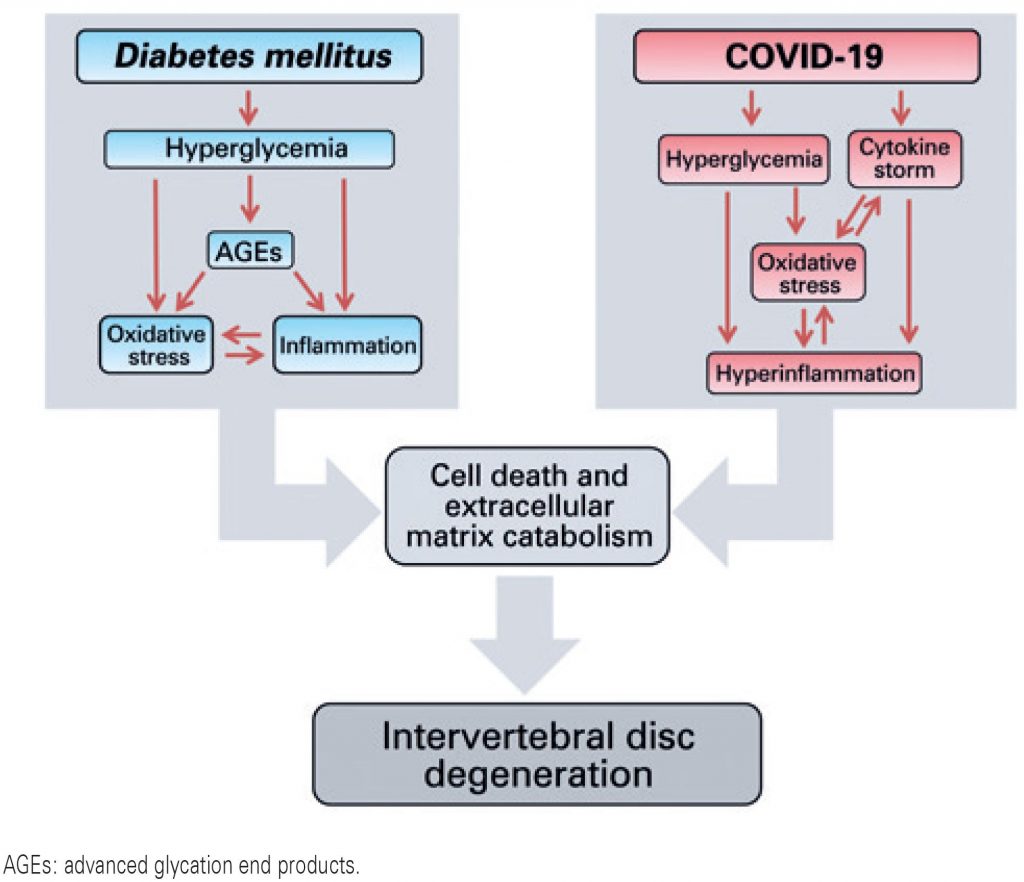einstein (São Paulo). 15/Dec/2021;19:eCE6911.
The potential impact of COVID-19 and diabetes on intervertebral disc degeneration
DOI: 10.31744/einstein_journal/2021CE6911
Dear Editor,
A large part of the world’s population has become infected by severe acute respiratory syndrome coronavirus 2 (SARS-CoV-2), the causative agent of coronavirus disease 2019 (COVID-19).( ) While most SARS-CoV-2 infected individuals were asymptomatic or presented with mild symptoms, some were severely affected. The most common COVID-19 symptoms include fever, cough, pneumonia, dyspnea and acute lung injury. Although respiratory symptoms are more frequent, extrapulmonary conditions including coagulation disorders, cardiac injury, kidney failure, and metabolic disorder, can also occur in severe COVID-19. Moreover, the SARS-CoV-2 infection induces an immune system overreaction, with high levels of inflammatory cytokines, chemokines, and free radicals, causing severe injuries to the lungs and other organs.( , ) The uncontrolled production of pro-inflammatory cytokines induced by SARS-CoV-2 is called a cytokine storm, a hyperimmune state in patients with severe disease.
[…]
304

